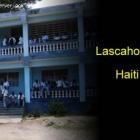ADVERTISEMENT
Coffee - Haiti Observer Blog
Coffee, Haiti Observer Blog. Read the following articles about Coffee
Lascahobas Economy
Lascahobas sits amid the Central Plateau of the island of Haiti. It is a second-level administrative division and the capital of Lascahobas Arrondissement. With a population numbering 41,716 residents, it is a one-hour drive from the Haiti-Dominican republic border. Three sub-divisions comprise Lascahobas, Little Background, Hoye, and Juampus.
In Lascahobas, agriculture drives the economy. Local farmland produces coffee, sisal, tobacco, and sugar crops. Sold at the always-crowded town market, the sale of these products supports commerce as a vital component of the community. A principle reason agrarian activity flourishes in Lascahobas is the well-irrigated farmland that draws water from the Lascahobas River.
Partnership with Saint Thomas University helps bring Haiti's coffee to the global market
Coffee used to be Haiti's main agricultural industry; the country is also one of the Caribbean's oldest and original coffee producers. Yet Haitian coffee has been overlooked and unrecognized in the world market. This is due to the difficulty in entering Haitian coffee to the international market, as well as the lack of benefits given to local coffee growers, thus a decline in local production. But recently, new light and hope has been given to the country's declining coffee industry.
The Haitian government, in partnership with Saint Thomas University, launched the Café COCANO Fair-Trade Coffee Project five years ago and has since been able to help boost Haiti's coffee market and assist local farmers in production and compensation. This project is also in partnership with the Cafeiere et Cacouyere du Nord' Ouest Coffee Cooperative, Pascucci Torrefazione, an Italian coffee roaster, and the University's Center for Peace and Justice.
Town of Baraderes, rich in Coffee Production
Baradères, capital of the Baradères Arrondissement, formed in 2003 as part of Nippes Department. A commune with a population of 30,000, situated on the northwest peninsula of Haiti, it is well known for its agricultural output. Local farming, an economic force in the village, yields enough crops, to maintain a subsistence standard of living.
Baradères one export is coffee, beginning its exportation in 2006. The roasting technique creates an intensely-flavored and sweet French Roast. The fair-trade coffee produces enough profits to erect schools and medical facilities in Nippes Department.
Baradères terrain contains mountain ranges and vales, extending 60-plus miles away from the center. Homesteading occurs mostly in the vales, more hospitable for farming. Baradères River streams through the vales, pouring into the Gulf de la Gonave about a mile out of the village.
Nestle Grants $3.5 Million to rescue Dying Coffee Industry
Nestlé is spear-heading a program that will target Haitian coffee farmers, who have the natural resources to produce specialty coffees. The corporation is collaborating with the Multilateral Investment Fund (FOMIN), a division of the Inter-American Development Bank, along with L'Agence Française de Développement. The agencies will hand out $3.5 million in grants to re-invigorate Haiti's sagging coffee industry. Statistics cite export coffee production plummeted from 191,000 bags in 1990 to 16,000 bags nearly two decades later.
The comprehensive program includes best practices for sustainability farming, coffee bean harvesting, sorting, manufacturing processes, quality assurance, fair trade certification, and marketing. The coffee collectives will also learn cost-effective techniques to lower production costs. The program will also assist coffee farmers learn new business skills, including collective procurement of agricultural tools, machinery, and methods of bean roasting.
Paul Magloire was Haitian Military ruler
Magloire was born on July 19, 1907 in Cap Haitien, Haiti. He gained his leadership skills from his mother, General Magloire Rose. He joined the Haitian army in 1930 but due to his hard work he was promoted to Police Chief of Port-au- Prince in 1944. In 1946 he took part in coup against President Elie Lescot. His ability to fight for his rights made him to become the president in 1950 after removing President Dumarsais Estime from power.
He was a great leader who improved tourism in Haiti through maintaining good relations with US and European tourists. Magloire used the money the country got from coffee export to develop Haiti by repairing towns, building roads, public building and dam building. He was a social being who cerebrated and held parties with Haitians always. He empowered women's suffrage institutions.
Our objective is to share with you news and information about Haiti and the people of Haiti. Traditions, habits and the way we were or grew are alive in this site. We highly recommend that you Subscribe to our Newsletter and also share with us some of the things that are memorable and made us unique people.

 La Chapelle, Haiti
La Chapelle, Haiti  Black Friday Shopping Season
Black Friday Shopping Season  Newsletter
Newsletter  Lascahobas, Haiti
Lascahobas, Haiti  Life After Death
Life After Death